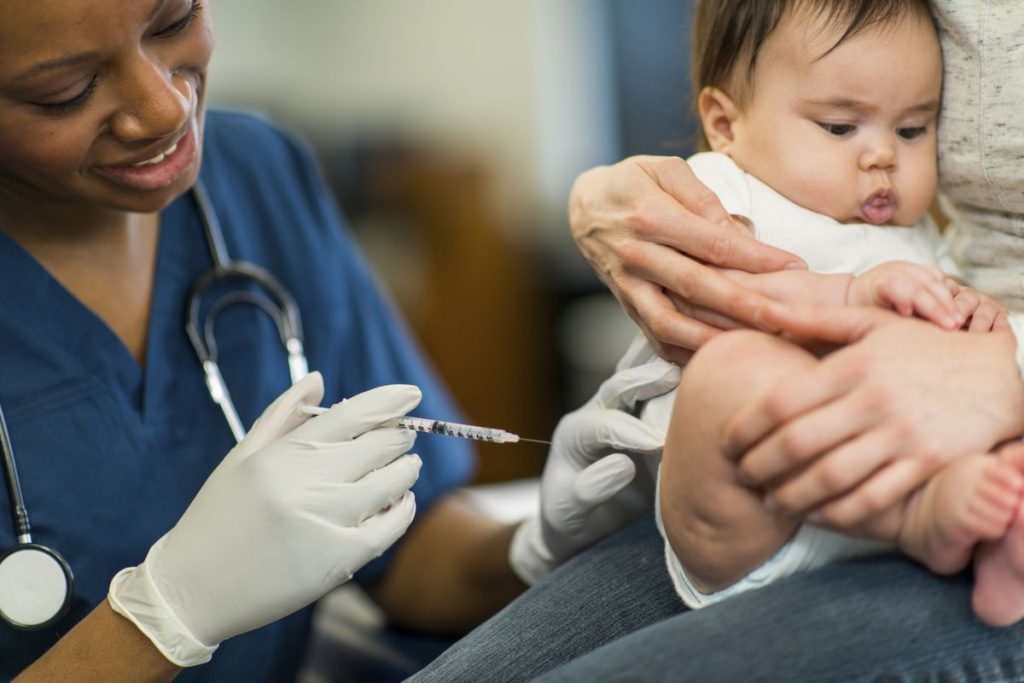Vaccines are important as they help in preventing pneumococcal disease which is any type of illness caused by streptococcus pneumonia bacteria. There are two kinds of pneumococcal vaccines available pneumococcal conjugate vaccine or pcv13 and pneumococcal polysaccharide vaccine or ppsv23.
What are pneumococcal infections?
The pneumococcal conjugate vaccine (pcv13) and the pneumococcal polysaccharide vaccine (ppsv23) are known to protect against pneumococcal infections. The bacteria that cause these infections transmit through person-to-person contact. These can lead to serious infections such as pneumonia, blood infections and bacterial meningitis.
Pcv13 protects against 13 types of pneumococcal bacteria which cause the most common pneumococcal infections in children whereas ppsv23 protects against 23 types. In kids getting infections, these vaccines prevent infections and help stop the infections from spreading to others.
When are PCV and PPSV immunizations given?
Infants receive pcv13 immunizations as a series of four injections –
- The first at 2 months of age
- After this, then at 4 months, 6 months, and 12-15 months
Some kids older than age 2 also might need a shot of pcv13 if missed one or more shots, especially if –
- They suffer from a chronic health condition (such as heart or lung disease)
- They have a condition that weakens the immune system (such as asplenia, HIV infection, etc.)
A doctor decides when and how often a child should get pcv13 vaccine.
Doctors also recommend ppsv23 immunizations for kids 2-18 years old with some kinds of chronic health conditions which include the following –
- Heart, lung, or liver disease
- Diabetes
- Kidney failure
- A weak immune system (like from cancer or HIV infection)
- Cochlear implants
Why are PCV and PPSV vaccines recommended?
Children younger than 2 years old, adults over 65 years, and people with some medical conditions are considered at high risk for serious pneumococcal infections. These vaccines are very effective at preventing severe disease, hospitalisation and even death.
What are the possible side effects of PCV and PPSV vaccines?
Children may have redness, tenderness, or swelling where the shot was given. A child may also have a fever after getting the shot. With any vaccine, there is a very small chance of an allergic reaction.
When to delay or avoid PCV and PPSV Immunization
These vaccines are not recommended if the child –
- Is currently sick. But simple fever and colds or other minor illnesses should not prevent immunization.
- Also, had a serious allergic reaction to an earlier dose of a pneumococcal vaccine or to the DTaP vaccine.
Aftercare of the child with PCV and PPSV Immunization
These vaccines may lead to mild fever and soreness or redness in the injection area. Check with the doctor to see if either acetaminophen or ibuprofen can be given for pain or fever and to find out the right dose.
When to call a doctor?
Call the doctor if –
- The child missed a dose in the series
- The child has a serious allergic reaction or high fever after immunization
Conclusion
Vaccines should be done for everyone because it is important to protect against infections. Talk to the doctor for a proper schedule in immunization.
References –
- pneumococcal vaccination | cdc
- your child’s immunizations: pneumococcal vaccines (pcv, ppsv) (for parents) – nemours kidshealth
